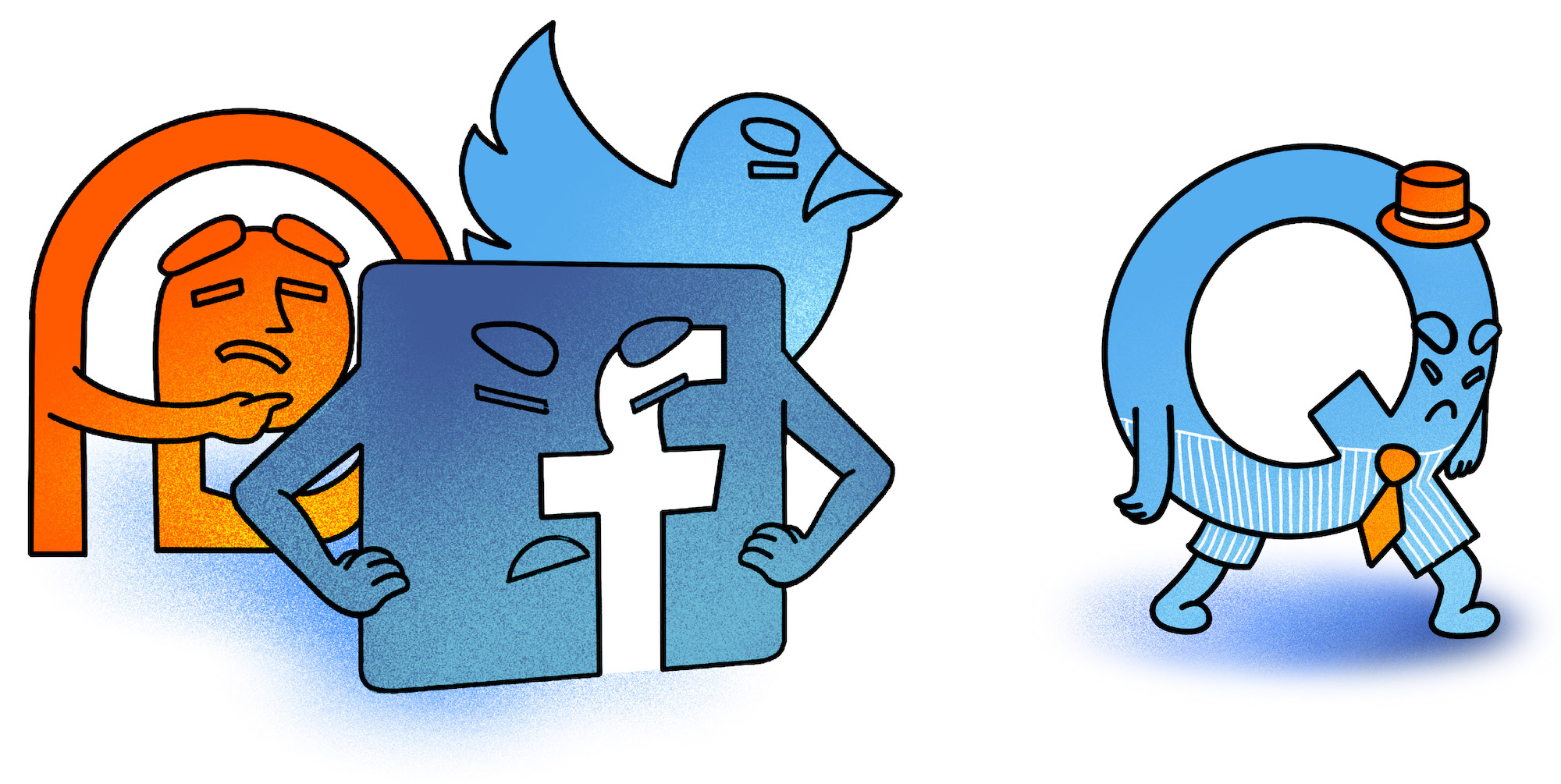At 2 a.m. in the morning on a random day in my childhood, I sat at the kitchen table with my family, my Bible open to the Book of Revelation. My father’s voice had been droning on for hours, and while most children would be fighting sleep, I was not. After years of these unpredictably long sermons from my father, fear kept me wide awake. The fear stemmed from knowing any interruption or lack of focus on my father’s every word would anger my father, and anger God.
The end times or the apocalypse were common topics in my household. Understanding what is discussed in the Bible about the end times is impossible, as most of it is written with poetically cryptic wording that leaves everything up to individual interpretation. Furthermore, I will never quite know how one could be fully prepared for the apocalypse by reading a mystifying and coded book in the Bible; yet in that time of my life, I believed and feared this prophecy of the future with my entirety. Years of indoctrination while living with my parents have given me a different perspective on many things in life, most recently the riot that engulfed the Capitol Building on January 6.
Key participants in this riot were members of a group that was relatively unknown until recently: QAnon. Almost overnight, information about QAnon was brought to the world’s attention, and its seemingly insane beliefs were broadcast around the world. QAnon was labeled as a cult, and the media portrayed members of the group as crazy and ignorant.
While my family was never a part of an officially-recognized cult, my father practically ran our home like a cult and used the same tactics of mind control often used in cults like QAnon. While the execution of these tactics might be different, the effects can be just as powerful and damaging to anyone they victimize.
While some general public members did not know about QAnon until the January 6 riot, it began years earlier. In October 2017, an anonymous user named Q, who remains unknown to this day, posted a series of messages on the online message board 4chan. These messages were referred to as “Q drops” or “breadcrumbs” and claimed to be insider knowledge that explained and proved several conspiracy theories. Q claimed to have high-level government clearance allowing for this insider information, and his messages were often coded and enigmatic, adding to the intrigue and mysterious nature of the information.
When a cult leader words something indecipherably, it is a tactic used to control their members. Cryptic language is successful for several reasons; most importantly it sparks a sense of curiosity in the average person, which makes them want to know more. To find out more, they have to join the group, and thus they are hooked. In an interview conducted by Rolling Stone, a man named Jitarth Jadeja explained how Q’s cryptic messages had this exact effect on him, saying, “You read a Q drop and he tells you something, and you’re like, ‘Whoa dude, that’s crazy’….a hit of dopamine goes off in your brain, and you have to go in deeper and deeper and deeper in order to get that feeling again.”
QAnon’s beliefs and theories have been described by The New York Times as “incredibly convoluted,” which also said one could “fill an entire book explaining its various tributaries and sub-theories.” The large number of conspiracies QAnon followers learn about from the group can cause a form of mind control known as information overload. According to Dr. Stephan Pretorius, South Africa’s leading researcher on cults, “A human being can only absorb a limited amount of information in an analytical way. When too much information is given, a person will simply absorb it uncritically.”
QAnon spreads its theories on online platforms tailored to one’s preference and designed to keep one scrolling. Absorbing information at that fast pace can easily lead to information overload and cause one not to absorb information critically. Sleep deprivation, which is likely for individuals who become super invested in QAnon to have, decreases an individual’s intellectual thought process, making them more susceptible to absorbing messages, according to Pretorius. A report from the Times of Israel described the experience of one QAnon member: “Ceally Smith spent a year down the rabbit hole of QAnon, devoting more and more time to researching and discussing the conspiracy theory online. Eventually, it consumed her.”
Unfortunately, cults become all-consuming. As a child, there was not a single moment that my focus was not on pleasing my father and earning my salvation; this was continuously reinforced by the mind control techniques like information overload and sleep deprivation, making it impossible to question what I was taught. There was never a moment where I was not consumed by my father’s whims.
While QAnon supporters believe in a host of conspiracy theories, it’s most widely recognized for its avid support of former President Donald Trump, and most of its core theories support a pro-Trump theme. They believe the world is run by a cabal of Satan-worshipping, sex trafficking, cannibalistic pedophiles, members of which include high-level Democrats like President Joe Biden, Hillary Clinton and former President Barack Obama, as well as celebrities and religious figures like Oprah, Ellen, Tom Hanks, Pope Francis and the Dalai Lama. According to Qanon, Trump was recruited by the United States military to break up this criminal element in the government.
When spelled out like that, their beliefs sound crazy and impossible to believe. However, it usually starts way smaller. Look up one thing that falls under the extensive QAnon conspiracy umbrella, and it becomes a slippery slope that can lead to one’s social media feed being inundated with QAnon conspiracies.
Some QAnon members have moved away from the original online platform and used their beliefs to justify multiple illegal acts. The most notable of these acts was the riot at the U.S. Capitol on January 6. However, both before and after the riot, QAnon members have been charged with multiple violent crimes committed in service of Q, including kidnappings, attempted assassinations, murder and terrorism.
One female Qanon supporter ran two strangers over with her car because she thought they were child traffickers. In 2018, a heavily-armed man blocked a bridge over the Hoover Dam due to his affiliation with QAnon. Online QAnon activity has included coordinated abuse of any individual QAnon believes to be a part of the government cover-up. The New York Times also reported that QAnon supporters spread false information about “Covid-19, the Black Lives Matter protests and the presidential election.”
It is hard to see any of what this group does as justifiable, and overall it is not. However, one must understand that some members got involved because this group manipulated the very best parts of them. This creates what is known as cognitive dissonance, an underlying principle in mind control and QAnon’s most potent weapon in recruiting new followers. According to Pretorius, “Cognitive dissonance occurs when an individual is confronted with two or more contradicting cognitions or ideas. The result is that the individual experiences discomfort…The view and lifestyle of the cult is presented as ‘pure’ and novel compared to the bad, evil, unfulfilling world-view of the individual. As a result, cognitive dissonance is created. The individual is now forced to make choices or act in order to relieve the discomfort.”
The belief that there are members in high-ranking positions of power capable of the horrendous claims that QAnon conditions its members to believe forces this cognitive dissonance in individuals. One can ignore the perceived problem laid out by QAnon and become labeled as deluded for not believing the “truth,” or worse, as a part of the conspiracy; or they can accept the conspiracy and QAnon’s “truth,” and work to stop the perceived horrendous claims that are happening. This becomes a problem because, at this point, believers can justify anything. After all, what their perceived enemy is doing is so much worse than anything they could do. This fosters the environment of “us versus them” and allows them to justify any action taken against their perceived enemy.
I know the power of cognitive dissonance from personal experience, as I experienced this principle of mind control in my childhood. The Bible’s cryptic messages are often left up to the reader’s interpretation and can be twisted to fit an individual’s narrative and excuse any behavior or belief. The amounts of times that my father used the Bible to justify his actions and condemn me were endless. His favorite passage, and the one that sticks with me the most, was when he would say, “Love keeps no records of wrongs” (1 Corinthians 13:5) in response to the few times I tried to hold him accountable for his actions. This forced me to either choose not to hold him accountable for his actions or continue to stand against his actions. Standing against his actions would threaten my safety and, even more terrifying at the time, risk me facing an existential threat, because how could one ever disagree with God without facing eternal damnation?
It is not exactly logical to believe that an all-powerful God would punish me for the rest of eternity because I dared speak up to my father, just like QAnon’s beliefs do not always appear logical to someone on the outside looking in. However, when faced with situations that challenge our thought processes, the tactics these cults use to create respect and fear are powerful and leave room for anyone to fall prey to them. No matter how smart or educated one is, if something can push your emotions in just the right way, it can and will have you believing what the rest of the world might label as crazy. No one is immune to being manipulated into something that goes against their identity.
However, being aware of cult mindsets and mind control tactics will help you spot when someone or something is trying to control you. Approaching people who have been in cults like QAnon with empathy is bound to go farther than approaching them with hostility. While mocking QAnon members and their beliefs online might be a tempting trend, it will only further alienate individuals. As reality clashes with QAnon’s beliefs, some have continued to hang on by doubling down on conspiracy theories, but others have started to question their beliefs. When people are in this state of questioning, it is crucial to speak to them with kindness and be understanding. As Jadeja, a former QAnon member, said, “It’s not about who is right or who is wrong. I’m here to preach empathy, for the normal people, the good people who got brainwashed by this death cult.”






